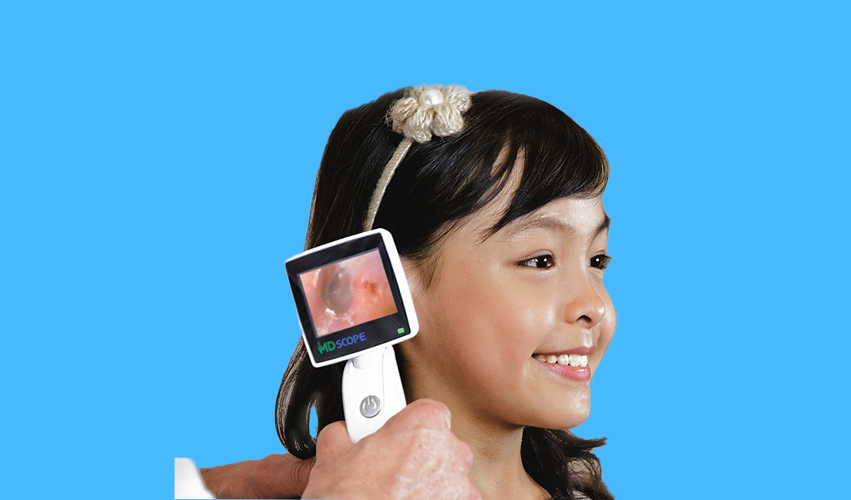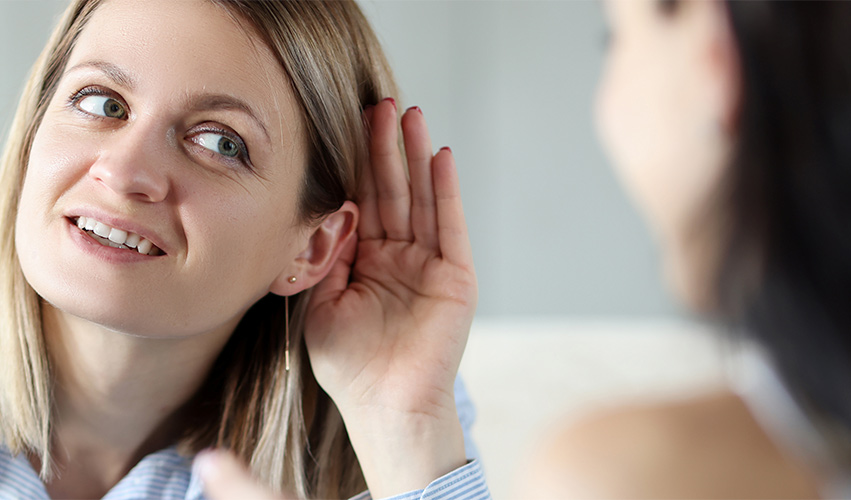
Pull down the menu to see the list of items
What is Speech audiometry?
What is Speech audiometry?
Speech audiometry is a hearing test used to evaluate a person's ability to hear and understand spoken language. It is an important component of a hearing evaluation and is usually performed as part of a complete audiological evaluation.
During speech audiometry, words or phrases are presented at different volume levels and the patient is asked to repeat or signal them. These words are presented through headphones or in an open sound field, and the results are recorded on an audiogram. The audiogram shows the patient's hearing in relation to pure tones and speech.
Speech audiometry allows the audiologist to determine the patient's hearing threshold, i.e., the lowest volume level at which the patient can understand speech. It can also help identify the nature and degree of any hearing loss and determine the need for intervention or treatment.
It is important to note that speech audiometry is only one of many tests used in a complete hearing evaluation. Other methods, such as audiometry, videotoscopy, impendaciometry and auditory processing tests, are also used to obtain a complete picture of an individual's hearing.
Prevent Hearing Problems
The main objective of speech audiometry is to assess a person's ability to understand and process speech.
The purpose of this test is to determine the patient's hearing threshold, i.e., the minimum volume level necessary to be able to perceive and recognize the words or phrases presented.
By assessing the hearing threshold, speech audiometry allows the audiologist to identify the presence and degree of any hearing loss that may affect a person's ability to hear speech.
In addition, this test provides information about the patient's hearing performance at different frequencies and intensity levels.
Speech audiometry can also help determine the effectiveness of hearing aids or hearing prostheses used by the patient. If an amplification device, such as an ear, is used during the test, the audiologist can adjust the amplification settings to optimize speech understanding.
In summary, the main objectives of speech audiometry are:
- Assess the patient's hearing threshold.
- Determine the presence and degree of hearing loss.
- Evaluate the patient's hearing performance at different frequencies and intensity levels.
- Assist in the selection and fitting of hearing amplification devices.
- To provide information for the diagnosis and planning of auditory intervention.
It is important to keep in mind that the specific objective of speech audiometry may vary according to the individual needs of the patient and the clinical context in which the test is performed.
Advantage of speech audiometry?
Speech audiometry, also known as verbal audiometry, is a method of hearing assessment that uses words and spoken language to measure a person's ability to hear and understand speech. Unlike tone audiometry, which is based on the perception of pure tones, speech audiometry evaluates a person's ability to recognize and repeat words under different listening conditions.
One of the advantages of speech audiometry is that it provides more relevant information about a person's ability to communicate in everyday situations.
Often, the primary goal of an individual with hearing loss is to be able to understand speech and participate in conversations.
Speech audiometry evaluates how well a person hears and understands words at different volume levels and in different background noise situations.
By using words and phrases instead of pure tones, speech audiometry can provide a more accurate and practical assessment of hearing in the context of spoken language.
This is particularly useful for evaluating the hearing of people who have difficulty understanding speech, such as those with sensorineural hearing loss, auditory processing disorders or speech perception problems.
In summary, the main advantage of speech audiometry is that it provides a more realistic assessment of a person's ability to hear and understand speech in everyday situations. more realistic assessment of a person's ability to hear and understand speech in everyday situations. By assessing hearing in the context of spoken language, audiology professionals can gain valuable information to recommend treatments and devices to help improve communication and quality of life for people with hearing loss.
Disadvantages of speech audiometry?
While speech audiometry is a useful technique for assessing hearing and speech understanding, it also has some possible limitations or drawbacks that are worth mentioning. Here are some aspects to consider:
1. Subject to patient response errors: Speech audiometry is based on patient responses to auditory stimuli. However, responses may vary depending on the patient' s attention, concentration or even motivation. This may influence the accuracy of the results.
2. Limitations in patients with cognitive or developmental difficulties: Speech audiometry requires that the patient understands the instructions and responds appropriately. In the case of people with cognitive or developmental difficulties, this can be a challenge and may affect the reliability of the results.
3. Does not provide information on hearing quality: Speech audiometry is mainly focused on hearing detection at different frequencies and intensity levels. It does not provide detailed information on hearing quality, such as the perception of speech clarity or the ability to discriminate different sounds.
4. Does not fully assess central auditory processing: Speech audiometry focuses on peripheral hearing, i.e., the inner ear's response to sound stimuli. It does not directly assess central auditory processing, which involves how the brain interprets and understands auditory stimuli.
5. May be limited in detecting certain hearing disorders: Although speech audiometry is useful for detecting hearing loss and determining its degree and configuration, it may not be sufficient for detecting certain more complex hearing disorders, such as tinnitus or hypersensitivity to sound.
It is important to note that these drawbacks do not invalidate the usefulness of speech audiometry, as it remains a standard and valuable tool in audiologic evaluation. However, it is important for audiologists to be aware of these limitations and use other complementary tests as needed to obtain a more complete and accurate hearing evaluation.
CONCLUSION
The center in La Cala de Mijas is equipped with the latest technologies and innovations in the sector, with two soundproof booths and an innovative 360 room for diagnostic tests,unique in Malaga and unique in Andalusia. Thanks to its state-of-the-art equipment, patients can test their hearing from any angle and simulating different situations, such as conversational or noisy spaces.
They have also incorporated an Otoscan hearing scanner, which helps to provide hearing aids to all people suffering from hearing loss. With a maximum level of fitting thanks to the depth and accuracy of the tympanic impressions, reducing the number of adjustments needed due to a bad impression.
In addition, because the image of the ear canal is placed in a virtual space, people can have their hearing aids in record time.At the first signs of hearing loss, it is vital to go to specialists such as Sontec Hearing CentersThey assess and treat each case individually and seek the best solutions.
From Sontec Hearing Centerswe want to help you in the work of awareness of hearing care and its relationship with health in general, therefore, we have generated this article. As part of our work methodology, our centers offer a free in-depth hearing evaluation, from which we recommend the best solution to the problem according to the needs of each individual.
To this end, we have highly qualified audiologists and audiology professionals, registered in Spain and the United Kingdom, who take care of all the hearing health needs of their clients.
We also work together with the Junta de Andalucía and the Andalusian Health Service, as well as with several organizations based in the United Kingdom.
For more information, please contact any of our hearing centers:
Sontec La Cala de Mijas
Plaza del Bulevar, 26 B, 29649 Mijas | +34 952-467-675
Sontec Fuengirola
Calle Hermanos Pinzón 4, Edificio Florida II, Local 9ºA, 29640 Fuengirola | +34 952 667 402
info@sontec.es | https://sontec.es
Related articles
Follow us at
Subscribe
Leave us your email and we will send you the latest posts from our BLOG on hearing and hearing health.





